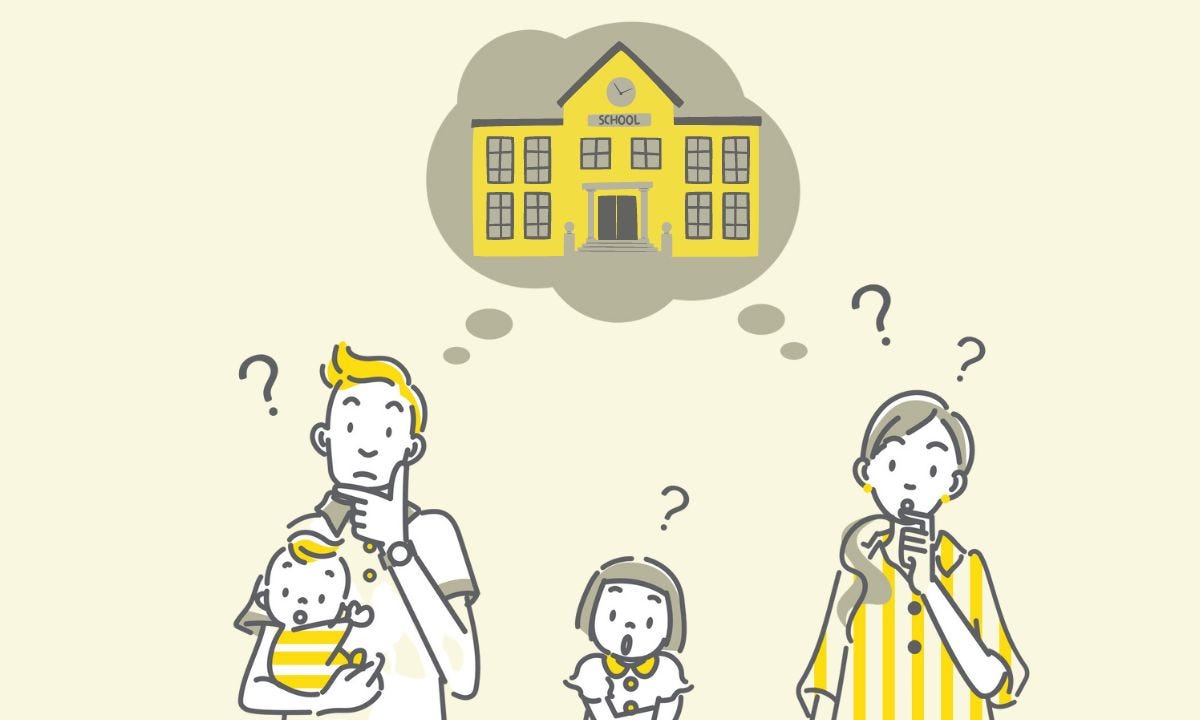Do we need an education rebrand?
Why terms like “alternative education” are holding us back from choice
I’ve been thinking a lot about how education choice gets muddled, not just by a proliferation of categories, but by the language we use to describe those categories. Words like “alternative education” and “homeschooling” trigger immediate, often unconscious judgments. And those judgments shape what feels legitimate, accessible, or even worth exploring.
Look up “alternative education” on Reddit and you’ll find a host of confusion, not to mention zero consensus on what the term actually means. And that tension around language isn’t new. Last week, I came across a popular WIRED article from 2015 about a growing trend of tech professionals choosing to homeschool their kids. One family featured had been doing so for nine years, but deliberately referred to it as “independent learning,” a subtle but telling choice that reflects how many families are quietly distancing themselves from the term “homeschooling” altogether.
Educational choice is affected by language
For the longest time, traditional school was the default. Anything outside of that was considered “alternative”. But as more learning models emerge and families opt out of the traditional path, the language around education becomes more than semantics.
This naming problem matters. It affects how families discover options and contributes to the narratives that shape public perception and legitimacy of non-traditional approaches.
I’d argue that educational choice is not just burdened by policies and funding, but also by the language we use to describe it—often leading to forms of gatekeeping, confusion, and outdated interpretations that don’t match the innovation and nuance that exists within the “alternative ed” categories.
We often treat education as purely instructional, but it also plays a role in how people signal status and identity.
Why "alternative" is loaded and insufficient
When we label something "alternative," we position it as secondary, existing only in relation to the "normal" option. This framing problem is particularly acute in education, where "alternative" has come to be a catch-all term for everything from progressive Montessori schools to behavioral intervention programs for struggling students.
The term "alternative education" falls short in a few ways:
It's defined by what it's not. “Alternative education” tells us only that it isn’t traditional. It gives no clarity about what it is.
It lumps unlike things together. A Montessori preschool, a tech-driven microschool, and a program for at-risk youth all sit under the same umbrella, despite radically different goals.
It carries stigma. Many still associate “alternative education” with underperformance, remediation, or fringe ideologies. This creates a perception hurdle for models that are actually innovative, rigorous, or values-driven.
The naming issue goes beyond “alternative”
The problem isn't limited to one term.
homeschooling, for example, describes a location not a pedagogy. But it still carries cultural baggage: assumptions about religious affiliation, isolation, or lack of structure. In reality, today’s homeschoolers might attend online schools, participate in project-based pods, or follow modular curricula curated by learning coaches.
edtech used to signal innovation. But with technology now embedded in nearly every learning environment, it’s become more of a default layer than a distinct category.
I’m not arguing that we need to rename every model. Nor will language alone fix education. But the words we use shape how families navigate options, how policymakers craft regulations, and how legitimacy is formed.
At the very least, we should recognize how outdated terms can obscure the full range of possibilities emerging in modern learning.
A new language for learning
Rather than rebranding legacy models, we might need entirely new language to refer to the next phase of education.
Manisha Snoyer, founder of Modulo, suggests the term “modular learning” to describe how many families are now assembling education like building blocks from a mix of online platforms, in-person tutors, co-ops, and enrichment programs. Adam Peshek, meanwhile, proposes “indie schooling” to capture a rising category of independent, founder-driven schools, often small and intentionally designed outside the traditional public or large private school systems. Much like indie music or film, these schools prioritize personalization and community over scale or standardization.
These terms reflect real shifts. But they also risk becoming new buzzwords if not clearly defined or tied to deeper structural change.
One metaphor I find helpful is to think of education evolving in similar ways to the internet.
If Education 1.0 was top-down through direct instruction, and Education 2.0 introduced more interactivity from a centralized source, Education 3.0 represents the latest phase in education: decentralized, learner-owned, and community-driven. Like web3, it’s less about fixed models and more about fluid networks of participation and ownership. Choice.
Why language matters moving forward
Ultimately, we don’t need one perfect term. What matters is developing language that is both inviting and reflects the full spectrum of learning happening today.
For many families, choosing a model is just the beginning. What they’re really searching for is language that aligns with their values, speaks to their lived experience, and helps them feel seen.
How do you talk about education in your own circles? I’d love to hear your thoughts.



